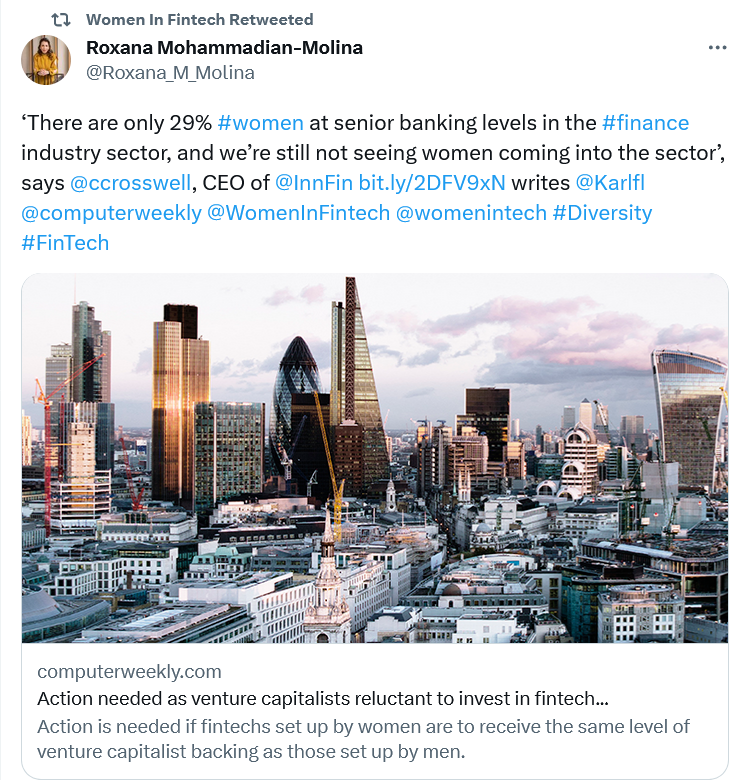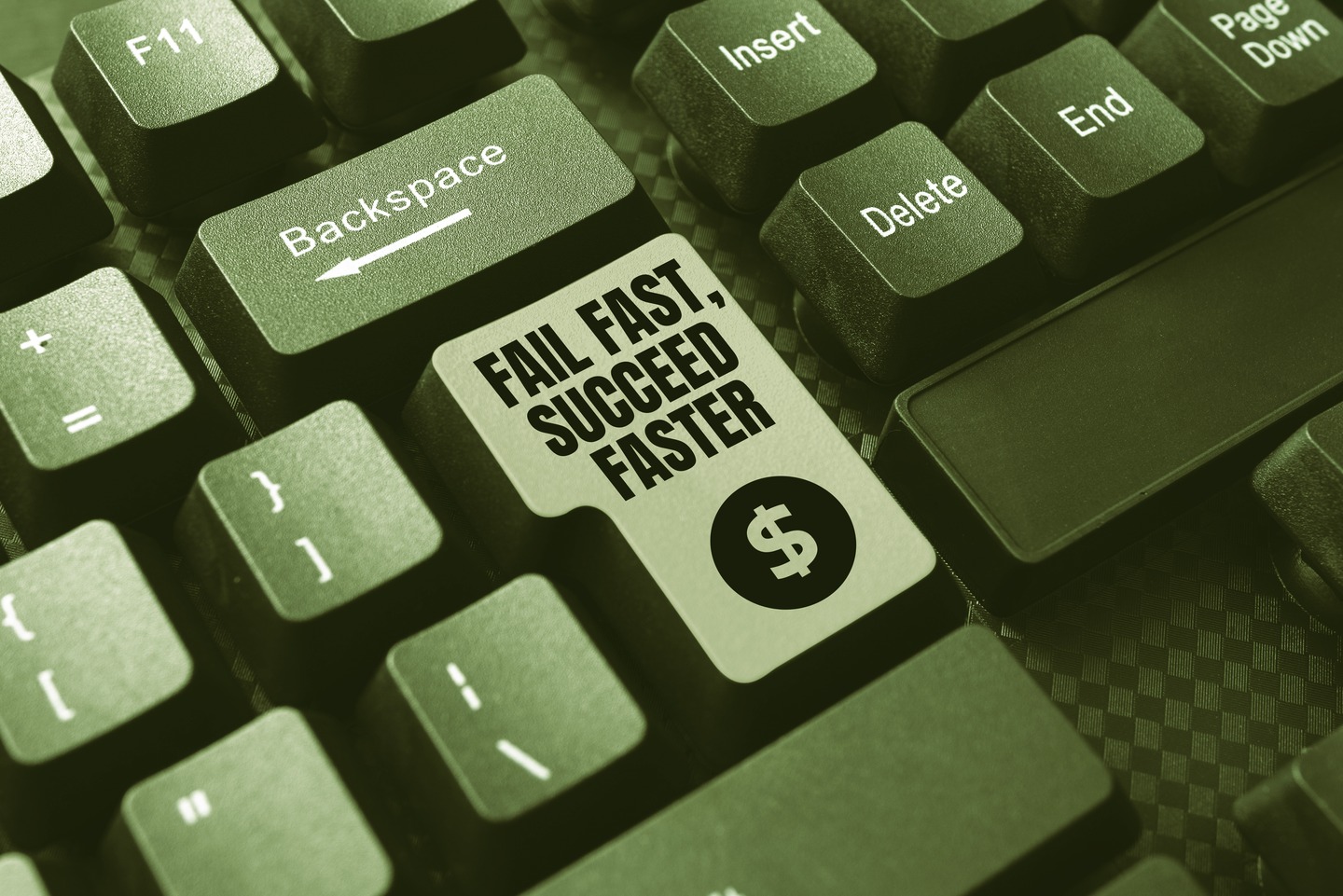Women in tech: the fintech mindset

• Women in tech may have a less patriarchal experience in fintech.
• Innovation in fintech means creating new worlds, not recreating old ones.
• That means there’s an “outsider” energy on which fintech depends.
In our ongoing series of interviews with women in tech, exploring their journeys and their careers in technology, we sat down recently with Monica Eaton, co-founder of Chargebacks911.
Monica’s story is unlike that of many of the women in tech to whom we’ve spoken so far. Her company, which helps merchants avoid high levels of business-slowing chargebacks, was created on the back of her own experience of those chargebacks while trying to run a healthy ecommerce business.
Monica is a passionate advocate for women in tech, to the point of creating her own micro-mentorship program, called Lift: Elevating Women in Fintech.
We wanted to know how her story in fintech began.
THQ:
We’ve heard from other women in tech that there was always a lot of initial societal pressure not to go into tech if you were a girl or young woman. Was fintech, distinctly, always a pathway that was easy to consider getting into?
ME:
Well, I’ll tell you, I got into it by accident, and speaking to a lot of other founders and leaders in the industry, I don’t think I’m alone, in that many of us fell into this. And financial technology has just evolved due to the needs of the industry and the client-base. So, has it been difficult? It’s challenging for sure, but I think there’s also a terrific amount of opportunity, which keeps things exciting. And so yeah, maybe yes… and no.
Women in tech: fintech challenges.
THQ:
Historically, the best answer to any question. If there are challenges in being a female founder in fintech – what are they?
READ NEXT

Women in Tech: barriers to inclusion
ME:
You know, getting into fintech, it’s different to being in the mainstream tech industry, and different to being in most other standard industries too. Our motto is “challenging the status quo.” And that sounds simple when you think about it – just constantly innovate. But it’s also about constantly understanding that your best is yet to come.
You want an example of innovation? The rest of the world outside of fintech will look at innovation as making the process faster, more efficient, developing a slicker user interface so it’s more intuitive. And if you have ten steps, the rest of the world thinks innovating is creating something that’s modernized and faster – “Look, we found a way to do the ten steps, but it’s automated and cool!”
When you look at getting an edge in fintech, you have to think outside the box, you need to really think differently about the problem. And specifically, it’s a new world, it’s not a new version of the old world.
So rather than looking at how can we automate those ten steps, in fintech it’s actually a case of thinking “Do we need those ten steps? How can we actually get rid of those ten steps and make it two. Or better yet, can we just get rid of this entire process?”
A lot of the growth that has come in the industry has been from external views, non-traditional views. You need a very diverse team if you want to regularly deliver different ways to think about how to solve a problem, when the rest of the world is pretty set on doing a thing a tried and trusted way. It’s that outside-the-box thinking that really creates innovation. It’s exciting, but I think that’s also a constant challenge that all of us really have to be disciplined in.
YOU MIGHT LIKE

Women in Tech: the importance of allyship
Women in tech: the diversity question.
THQ:
In tech, generally, there’s a longstanding patriarchy in terms of who gets to make those decisions and who gets to be part of those teams. Is that significantly different in fintech, particularly because of that idea of finding different ways of solving problems?
ME:
You mean is fintech more diverse?
THQ:
That’s absolutely what we were asking. With about eight steps cut out.
ME:
That’s a great question.
I think being underestimated can actually be an asset, an advantage. And really this is what you find with any unicorn company – it’s always the dark horses, right? The Trojan horse or a company that just comes out of nowhere, you don’t know what they’re doing. So in many ways, I think that fintech is more inviting to different opinions and different structure. However, there’s a flip side to that, where as an individual, it takes a lot more tenacity and grit to get ahead, because you don’t have an open door, you have to create your open doors.

In fintech, sometimes you have to make your own open doors.
But the good news is that you can create disruption, and it’s an environment where that is a breath of fresh air in many aspects. So again, there are pros and cons. I will say, the industry from even a decade ago, even five years ago, has changed substantially. Especially internationally, I think there’s a lot more inclusion.
But to your point, 28% of the tech workforce is women, and that has probably increased substantially as well – it used to be much, much worse. So starting out as a woman in business in technology, I will definitely say there were a lot more barriers when I started than there are today. But I think probably the number one barrier is actually our own self-confidence.
It’s not as much the traditional things – yes, there are barriers politically, there’s some prejudice, there’s still that glass ceiling, so to speak. But it’s also in creating that self-awareness and self-worth, that tradition has created a totally different ethos. So again, there’s two sides of the coin to look at. And there are things that we can learn from on both sides.
The normality insult.
THQ:
We’ve been talking to a lot of women in tech, and that’s something that they all mentioned – that notion of imposter syndrome being funneled into women, particularly in terms of looking at an industry that doesn’t foreground people like you, it makes you think “Well, clearly, that’s not for me.”
ME:
Right? I mean, I always say technology is an industry where if you’re called “normal,” it’s an insult. So it’s probably the only industry where if you’re crazy, you’re exactly on target, you’re going in the right direction. So I think creating that self-awareness and self-worth is crucial, and with women and other diversities it comes down to honing in and focusing on becoming an expert, and then performing – and then it’s no different to any other industry.
However, I will say, in fintech, you have a lot more opportunity to make a difference. Because everybody is challenging the status quo. That’s what it’s about. It’s about looking at different ways of doing things, not getting discouraged through failure and understanding. You don’t figure out what’s going to work unless you’re willing to try and try again.

We still need more women to shake up the fintech industry.
THQ:
So fintech is an unusual environment in the business world, because disruption doesn’t necessarily mean destruction.
ME:
Yes, exactly. It’s welcome. Yeah, it’s bizarre. People want to figure out what is this thing, what’s going to work, and that means it fosters the whole concept of “Fail fast.” You’ve lost the battle if fear prevents you from trying something that might not work. You need to really be assertive and aggressive and have confidence in your ability to recover and be resilient and solve a problem.

The mantra of everyone in fintech?
Instead of having passion for “I want to achieve this goal,” have passion for the journey, and what you’re going to learn in the process. Because inevitably, you may not actually end up solving the initial problem you set out to solve, but you’ll expose ten other problems along the way. And when I talk to founders in the industry, we’re all cut from the same cloth. We started out thinking, “This is what I want to do.” And then on that journey, it became “Oh my gosh, look at this other issue!” And now I’ve discovered this whole niche and how to solve things even better.
In Part 2 of this article, we’ll talk about overcoming obstacles in fintech, especially as a woman in tech.








